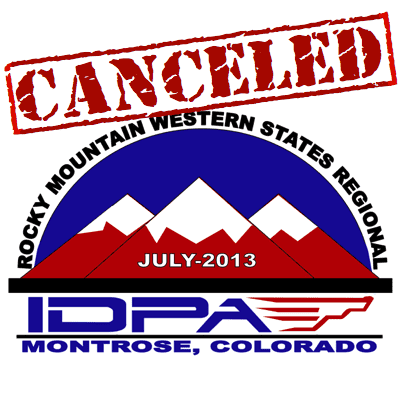Colorado Shooting Competition Canceled in Wake of New Gun Control Laws
OutdoorHub 04.01.13

Organizers of the Rocky Mountain Western States Regional IDPA Championship, initially scheduled to take place July 4-6 in Montrose, Colorado, have announced that the match is being canceled in the wake of Colorado’s recently passed gun control laws.
An estimated 300-plus shooters from the neighboring states and across the country were expected to attend the three-day competitive shooting event. This is the second shooting competition to abandon the state after a recent announcement by firearms maker Ruger that it was moving the 2013 Ruger Rimfire Challenge World Championship out of Colorado.
“With these new Colorado laws going into effect July 1, and based on the ambiguous way in which they were written, we have decided to cancel the Rocky Mountain Western States Regional IDPA Championship,” said event organizer Walt Proulx of Grand Junction.
“Due to the growing number of hunters and shooters choosing to boycott Colorado, and the risk that these laws as written will turn law-abiding citizens into criminals, we were left with no other choice but to cancel what was planned to be one of IDPA’s major regional championships, and one strongly supported by Montrose-area businesses.”
Cancellation of the Rocky Mountain Western States Regional adds to the negative economic impact resulting from the passage of Colorado’s recent gun control legislation. Already, Colorado-based firearms accessories manufacturer Magpul Industries Corp. has announced its intention to leave the state, and Michael Bane, an independent producer for the Outdoor Channel, has said he will cease production of four of the channel’s popular shooting programs in Colorado.
Hunters and shooters, as well as the firearms industry, play a major role in Colorado’s economy. According to data from the National Shooting Sports Foundation, over $590 million in annual economic impact is generated by the firearms industry in the state while Colorado’s 259,200 hunters spend another $465 million annually.

